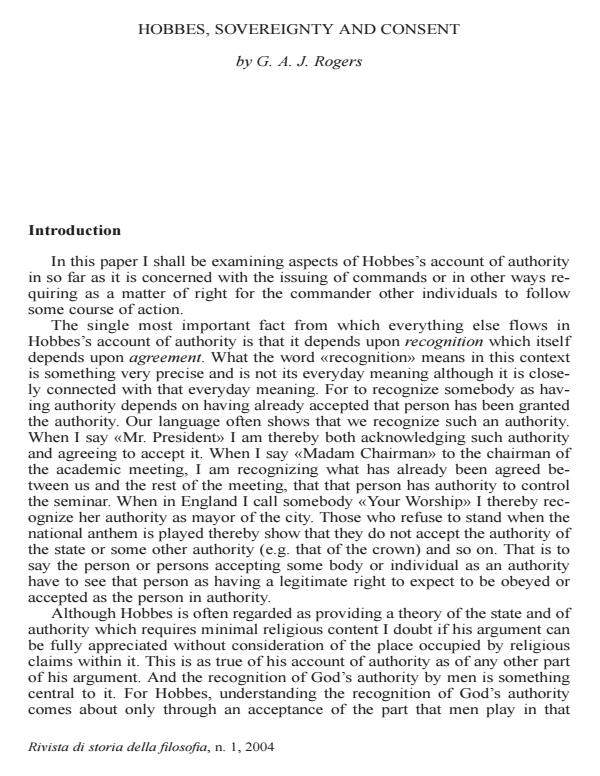Hobbes, sovereignty and consent
Titolo Rivista RIVISTA DI STORIA DELLA FILOSOFIA
Autori/Curatori G. A. J. Rogers
Anno di pubblicazione 2004 Fascicolo 2004/1
Lingua Italiano Numero pagine 8 P. Dimensione file 34 KB
DOI
Il DOI è il codice a barre della proprietà intellettuale: per saperne di più
clicca qui
Qui sotto puoi vedere in anteprima la prima pagina di questo articolo.
Se questo articolo ti interessa, lo puoi acquistare (e scaricare in formato pdf) seguendo le facili indicazioni per acquistare il download credit. Acquista Download Credits per scaricare questo Articolo in formato PDF

FrancoAngeli è membro della Publishers International Linking Association, Inc (PILA), associazione indipendente e non profit per facilitare (attraverso i servizi tecnologici implementati da CrossRef.org) l’accesso degli studiosi ai contenuti digitali nelle pubblicazioni professionali e scientifiche.
John Rogers explores the concepts of recognition, command and authority and tests their validity in several cases presented by Hobbes, ranging from parental authority to the omnipotence of God. The general thesis he defends is that, for Hobbes, autonomy always goes hand in hand with the possession of power. Even for the individuals in a civil society, there is no autonomy but in a condition of empowerment. But, at the same time, the strength of the laws of nature rests in their rationality, and there can be no doubt that their compelling force comes from their being rational. The comparison with mathematical theorems furnishes an important element of understanding, since the laws of nature are conclusions concerning that which conduces to the conservation of oneself. Although there is an empirical element in the deduction of those practical theorems, this is no objection to the analogy being drawn, since this empirical element belongs to the learning process and not to the rationality of the law itself. In the light of this conception of natural law, Hobbes thus appears as a rationalist in morals and politics.
G. A. J. Rogers, Hobbes, sovereignty and consent in "RIVISTA DI STORIA DELLA FILOSOFIA" 1/2004, pp , DOI: